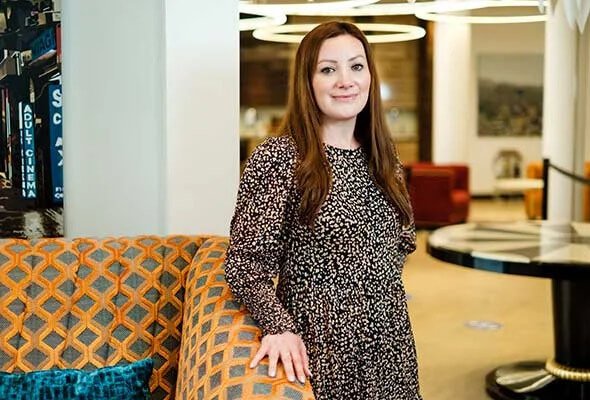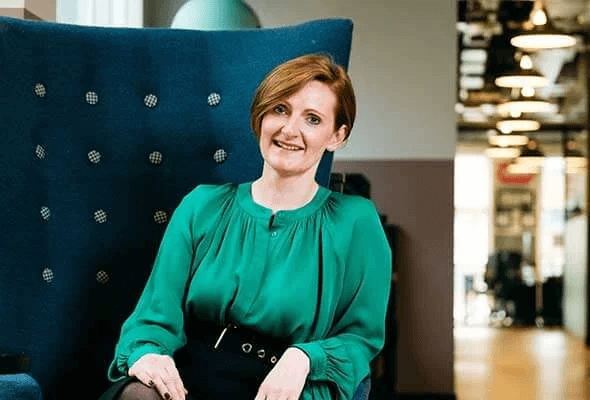A DAY IN THE LIFE OF
Jennifer Granby

Jennifer Granby
Partner
Jennifer is a Family Partner and was previously the Director of a boutique family law firm.
She joined our team in January 2021 so that she could spend more time working directly with clients.
As a full-time solicitor Jennifer has a busy case load and gives us an insight into how a solicitor can support someone through the mediation process and why she will always tailor her service to meet the needs of each individual client.
She also discusses the complexities of divorcing with a business, overseas assets and pension sharing, explaining how a pre-nuptial agreement could reduce costs and distress.

“I enjoyed leading and developing a team at my old firm, but my true passion is empowering people during difficult times. I was drawn to Allard Bailey’s flexible approach as it allows me to spend more time helping clients so that I can give everyone the support they need in the way they need it.”
As Jennifer joined the firm during the pandemic, she worked almost exclusively from her home office and continued to do so when the restrictions eased.
“I’ve been able to make some really positive changes to improve the way I work for clients. Removing the commute from my typical day means I have more time to dedicate to clients and the increased use of video conferencing means they don’t have to travel to meet with me if they don’t want to. Like me, many of my clients are Hertfordshire based so it is also helpful to have an office in Hertford as an alternative to travelling into London.
Where possible I use video conferencing instead of phone calls now too. As we are dealing with such personal matters, I like to have the extra level of contact with clients, especially those who need more support.”
Jennifer’s typical day working from home starts around 7.30am, as she checks her emails and plans her time whilst eating breakfast. She fields anything urgent and responds to simple requests before making a cup of tea and heading to her office.
Jennifer’s first video call today is to prepare a client for mediation, which has been scheduled for the client and her spouse to agree the financial details of their separation before finalising their divorce.
“My client gave up her career to support the family, caring for their two children and running the home, whilst her husband worked long hours. This worked for them when they were married, but now they need to separate their finances and it is pretty daunting for my client who has limited earnings potential and no pension in her own name. In contrast, her husband has reached a senior position in the city and has a substantial pension to see him through retirement.”
With input from her client, Jennifer has already negotiated with the husband’s solicitor to narrow down the parameters of their financial settlement. The mediation is to settle the final details so that the financial agreement can be drawn up and sent to the Court for approval.
“Financial arrangements on divorce often get stuck on small details which can mean a lot of going back and forward between solicitors. These sticking points can usually be resolved quickly if you get people in a room. There are different ways to achieve this including round table meetings with the solicitors present, but we felt mediation was appropriate in this case.
My job this morning is to ensure my client is fully prepared for whatever way the conversation might go, willing to make appropriate compromises and knows what they might be, so she is able to stand her ground on the points that are most important to her.
We have already obtained a report from a pensions’ actuary to provide advice about the various ways of addressing the pension disparity between my client and her husband. My client was able to discuss the options with me and it has been agreed that there will be a Pension Sharing Order in her favour so that she and her husband will have similar pension income on retirement. Pensions are complicated assets that it is important not to overlook.”
Jennifer is online with her client for an hour and ends the conversation feeling positive about the potential outcome.
“I enjoy this collaborative approach where my role is really to support and empower my client. Going through a divorce is one of the most stressful and emotional journeys and I want to get my clients to the other side feeling as positive as they can and able to move forward with their lives.”
After refreshing her cup of tea, Jennifer begins another video call to discuss finances with a client who is filing his own divorce.
“It is possible to complete your own divorce and agree finances and child arrangements between you. The Court actually prefers that parents do this for child arrangements if possible, but it is sensible for a solicitor to review the legality and fairness of financial agreements to ensure that assets are being divided both appropriately and in a way that is legally actionable.
Many firms are unwilling to provide this unbundled service where you only assist with specific aspects of a divorce but my ethos, and the firms ethos, is to tailor my service to provide the level of help that each person needs.”
In contrast, Jennifer’s next client is feeling overwhelmed and needs a lot more support to move forward with his life.
“You rarely find two people in the same place at the same time when a relationship ends and this couple could not have been further apart. My client was taken completely by surprise when his wife filed for divorce and is understandably very emotional about it. His initial reaction was to contest the divorce, which only added to his heart ache.”
Although it is possible to contest a divorce, this can difficult to achieve in practice and will increase legal fees. Also, a divorce can be granted without consent after a period of 5 years’ separation. Therefore, if one spouse wants a divorce it is sensible to consider whether there is anything positive to be gained from opposing it.
When it became clear that this marriage was going to end one way or another, Jennifer’s client realised that he was not emotionally able to deal with it himself and instructed her to help him with both the financial and child arrangements.
“In the first instance, my job is to help him process what is happening and look at things objectively so that he and his wife can reach a sensible agreement that enables them to move forward with their lives, whilst meeting the needs of their child who has also been struggling with the separation.
At his request, I try to shield him as much as I can and will WhatsApp or email to let him know I need to speak to him so that he can mentally prepare. If I receive correspondence from the wife’s solicitor on a Friday afternoon, I might hold off telling him until Monday morning so that we can talk about it as much as he needs to before responding, rather than leaving him to think about it over the weekend when I’m not around to offer support.”
After completing the video call, Jennifer checks her emails then breaks for lunch. She cooks herself poached eggs on toast and heads outside to eat in the garden.
“My lunches are much healthier since I’ve been preparing them myself at home and I can feel the difference it’s making.”
Forty minutes later she returns to her office with a cup of tea. Her first act is to prepare correspondence to the solicitor on the other side of a divorce where the couple owned and ran a very successful business together. Although the husband had founded the company, he brought the wife into the business and made her a partner after they were married. It was their only income as a couple. Now they are divorcing they need to agree the approach to valuing the business, either as an income stream or a capital asset.
“Divorcing with a business throws up various challenges that I need to work with my clients to overcome. Often both parties are employed in the business as well as owning shares in it and so there are complicated practical and tax issues to deal with if one person is to be extracted from the business. It’s important to consider all of the options and work out the best way of dealing with a business asset, in the context of the rest of the assets and the client’s priorities.”
Jennifer’s next client has extensive investments including three properties located in different continents, so she must be mindful of the tax implications of separating the couple’s finances. They have agreed to mutually instruct an international tax expert but are struggling to agree who that should be.
“In both these cases are couples who once worked well together, but now find it difficult to agree on the smallest points. A pre-nuptial or post-nuptial agreement would have helped by giving us a starting point for negotiations. They don’t have to be specific, but it would have and been more cost-effective in the long run if they had set out the principles for what would be ringfenced and the methods that would be used for valuation. It might not be romantic, but they are useful in more ways than people appreciate. When you share business interests or investments it’s a really sensible step to agree your position when you are on good terms.”
At 4pm Jennifer takes a break and goes for a walk in the local woods, admiring the wild flowers then spotting a deer before making her way home again. She has an out-of-hours conference with a Barrister and client at 6pm as the client works during regular office hours.
“I have lots of busy clients and working from my home office makes it easier for me to be available to them at a time that works for them, whilst still being able to do the things I need and want to do for myself, like my daily walk.”
Jennifer’s client is seeking permission from the Court to move overseas with her child. She can show that the move would result in a job, better housing and a wider support network for mother and child, improving their position considerably but is all too aware that it is difficult to obtain the Court’s agreement for a child to be removed from the country if the Father objects, even if he has little to no contact.
The conference is to discuss the likely outcome of the scheduled final hearing and the pros and cons of moving forward. To protect the client and her daughter, they have prepared proposals for contact arrangements for both a successful and unsuccessful outcome, which are detailed and well thought-through.
“I have been honest with my client from the outset that despite her strong case, the chances of obtaining leave to remove the child are slim. She needed to try for her own peace of mind though, so I’ve done all I can to put her in the best possible position whatever the outcome, ensuring all the legal paperwork is in order and matching her with a Barrister whose skills and personality suit her needs.
The Barrister will present the client’s case to the Court, so it was important to find someone she can have confidence in whilst also finding them approachable.”
To move overseas without the permission of either the Father or the Court would be Child Abduction, which is a serious criminal offense.
Once the video conference is over, Jennifer joins her husband for dinner, followed by an online stand-up comedy show – another positive to come from lockdown.
“I have found that working with Allard Bailey enables me be more client focused and to tailor my approach to the needs of each particular client. This supportive approach provides my clients with the best achievable outcomes and a better overall experience.”
Get To Know






About Us
As a specialist firm, we focus on all areas of family law and legal matters that affect private wealth.

Explore
Contact
Contact
info@allardbailey.com
(+44) 020 7993 2936
Head Office
3 Waterhouse Square,
138 Holborn, London, EC1N 2SW
Hertford Office
114-116 Fore Street, Hertford,
SG14 1AJ
Allard Bailey Family Law is a practice name of Allard Bailey Family Law Ltd, a company registered in England and Wales (no 10359344) and authorised by the Solicitors Regulation Authority (no 634271)
© 2024 Allard Bailey Family• All Rights Reserved

